What Is a Highly Sensitive Person? (Incl 12+ HSP Tests)
 Are you a sensitive soul?
Are you a sensitive soul?
Do you know someone who is?
Did you know there is a trait characterized by sensory processing sensitivity (SPS), which identifies a highly sensitive person/personality (HSP)?
The term HSP was first coined by the psychologist Elaine Aron (1996), who is herself an HSP. She and her husband devised the Highly Sensitive Person Scale (HSPS), which spawned further research into the trait, including its neurobiological origins (Aron & Aron, 1997).
Before that, Carl Jung was the first to recognize the importance of sensitivity and believed that it played a more important role than sexuality in an individual’s susceptibility to neurosis (Aron, 2004).
In this article, we will clarify the uniqueness of a highly sensitive person, discuss whether we should view HSP as a disorder, and provide suitable tests and treatments.
Before you continue, we thought you might like to download our three Resilience Exercises for free. These engaging, science-based exercises will help you effectively deal with difficult circumstances and give you the tools to improve the resilience of your clients, students, or employees.
This Article Contains:
- What Is High Sensitivity Personality (HSP)?
- Is Sensory Processing Sensitivity a Disorder?
- 10 Traits and Symptoms of Sensitive People
- Top 5 Tests to Measure Sensitivity
- How to Treat Sensory Processing Sensitivity
- Relationship Between HSP, Kids, and Autism
- 6 Best Books on the Topic
- Resources From PositivePsychology.com
- A Take-Home Message
- References
What Is High Sensitivity Personality (HSP)?
HSPs are estimated to make up 15–20% of the population when using the HSPS (Aron & Aron, 1997) to test and up to 30% of the population when using the shortened scale (SensitivityResearch.com, 2020).
When a person scores 14 or more on the 27-item HSPS (Aron & Aron, 1997), they are thought to have a highly sensitive personality. Aron’s (1996) original definition understood high sensitivity as inborn, genetic, and binomial rather than learned or existing on a spectrum. In other words, you are either born with it or you are not.
The terms HSP and SPS are often used interchangeably. In later research, Aron (2010) differentiated the HSP trait into four categories.
1. Depth of processing
HSPs process all types of information more deeply than others, are more reflective, and take longer to make decisions (Aron, 2010).
Depth of processing occurs both consciously, through analysis of information conveyed by communication in relationships, and unconsciously, through gut feelings or hunches.
2. Overarousability
HSPs notice a lot more than others in the same situation or environment, including other people’s emotions (although they may remain unexpressed), noise levels, smells, and other aspects of the environment (Aron, 2010). This can be advantageous but can also lead to overarousal and chronic stress.
3. Emotional intensity or empathy
HSPs experience strong positive and negative emotions in response to a range of pleasurable and painful stimuli (Aron, 2010). This increases their sensitivity to others’ feelings, making them very empathetic.
4. Sensory sensitivity
HSPs notice subtle environmental stimuli that other people miss. This can help protect them and others in their social group from unforeseen dangers but can also lead to problematic levels of sensitivity to foods, medicines, pain, noise, and light (Aron & Aron, 1997).
The combined effects of the trait result in empathic, conscientious, cautious individuals, who may also be sensation seeking and relish novelty (Aron, 2010). There is no correlation between the HSP trait and extroversion or introversion (Aron, 2010). However, an HSP will always carefully evaluate the risks before proceeding with an adventure, as their sensitivity counters impulsivity (Aron, 2010). HSPs tend to plan ahead and are excellent strategists.
From an evolutionary perspective, HSPs may have an oracular function in social groups due to heightened intuition and sensitivity to environmental cues (Acevedo, Jagiellowicz, Aron, Marhenke, & Aron, 2017). Highly sensitive members of around 100 animal species have been identified and often warn their group of dangers undetected by others, helping to keep them safe (Aron, Aron, & Jagiellowicz, 2012).
The HSP trait is not aligned with giftedness, which comprises only 3% of the population (Aron, 1996). However, research conducted by psychologist Elke van Hoof found that 87% of gifted people are highly sensitive (Koolhof, 2020).
HSPs also have a heightened aesthetic sense, being highly sensitive to beauty in nature and the arts (Aron, 2010). HSPs are also more disturbed by ugly or coarse stimuli than less sensitive people and avoid violent action films and news coverage (Aron, 2010). They are also more likely to have vivid dreams and have a rich inner life (Aron, 1996).
While HSPs are more distressed by negative environments than less sensitive people, they also benefit more from positive, supportive, and nurturing environments (Aron, 2010). This is especially true during childhood, but HSPs also benefit greatly from counseling and psychotherapy to overcome childhood difficulties, leading to low self-esteem (Aron, 2002).
There are cultural differences in their experiences, too. HSPs are highly valued members of societies that value reserved, cautious behavior such as China, Japan, and Sweden, but less so in bolder, competitive cultures such as Anglo-American and some European societies (Ketay et al., 2007).
Smolewska, McCabe, and Woody (2006) conducted a factor analysis of the HSPS and found it comprises three distinct factors:
- Awareness of aesthetics (AES)
- Low sensory threshold (LST)
- Ease of excitation (EOE)
Further analysis from Smolewska et al. (2006) found that higher AES indicators bestow more positive outcomes of the trait, including a more intense perception of subtleties and empathy, while higher LST and EOE scores tend to indicate more neurotic outcomes, such as anxiety, social withdrawal, hypervigilance, and overarousal. This brings us to the next section on HSP and psychopathology.
Is Sensory Processing Sensitivity a Disorder?

However, SPS can be distinguished from HFA because of the presence of high levels of empathy and responsiveness to social stimuli. SPS can also be misdiagnosed as attention deficit-hyperactivity disorder but differs because HSPs can concentrate for long periods when working in a quiet environment (Reijnders-Mies, 2021).
SPS can make some people more vulnerable to anxiety and depression due to feeling poorly understood, coupled with the tendency to withdraw and self-isolate following overstimulation (Dyer, 2018). However, SPS is a trait that presents a unique set of challenges and confers some advantages both to individual HSPs and the social groups they belong to at work, at home, and in the community.
Aron (2010) states that around 50% of patients seeking psychotherapy are HSPs, often due to the difficulties they face in relationships with others who misunderstand their trait and the patient’s framing of their SPS as a set of undesirable symptoms.
Aron (2010) explains how to work with SPS by providing psychoeducational interventions and remedial nurturing to compensate for the lack of support and understanding HSPs often encounter in the less sensitive outside world.
10 Traits and Symptoms of Sensitive People
HSPs have distinct traits that could be mistaken as symptoms but do not indicate a disorder. They can include the following (Aron, 2010):
- HSPs feel everything deeply and more intensely than others, whether joy or sadness, pleasure, or pain.
- HSPs’ high sensitivity means they take great joy in the simple pleasures in life, making them low maintenance and easy to please.
- HSPs need a lot more downtime than others, thrive in silence, and need a slower pace of life. This means taking the time to relax and process experiences is essential for their wellbeing.
- HSPs take longer to make decisions than others due to the depth of information processing involved, including conducting a thorough risk assessment and proceeding with caution.
- Change can pose problems for HSPs. Even positive change may result in high levels of excitement and anxiety simultaneously due to the overstimulation caused by new experiences.
- HSPs can find handling conflict and criticism challenging, as they tend to have very high expectations of themselves and are hard on themselves when falling short. Others’ additional criticism can feel overwhelming.
- HSPs tend to have a rich inner life, being more self-aware, creative, and insightful than less sensitive people. This is likely to draw them into exploring a spiritual path in life, especially contemplative practices like meditation. They also enjoy a deep appreciation of the arts such as painting, dance, and music.
- HSPs tend to avoid the negative overarousal caused by violent films and news coverage, which almost hurts them physically.
- HSPs vulnerability to overstimulation can lead to a tendency to withdraw in new or tense situations. This can lead to them being seen as shy or unsociable when many are extroverts who just need extra time alone to process things.
- HSPs prefer a small social circle full of love and support, which they return in abundance due to their high levels of empathy. Letting another person in takes time, but when an HSP becomes your friend, they are loyal and supportive through thick and thin.
Take a look at this video by Psych2Go for a summary of common problems faced by HSPs.
In contrast, this TED talk from Elena Herdieckerhoff discusses the advantages of high sensitivity.
Top 5 Tests to Measure Sensitivity
- The first HSP test for adults was the HSPS devised by Aron and Aron (1997) for use by researchers.
- There is also an HSP self-test for adults based on the same scale devised by Aron and Aron (1997).
- A shorter self-test scale for adults has been devised by more recent research on SensitivityResearch.com.
- Parents can use a specific test to assess their children for SPS based on Aron’s (2002) research on children.
- There is a short self-test for children 8–18 years old on SensitivityResearch.com.
How to Treat Sensory Processing Sensitivity

Often, highly sensitive clients will have struggled in life because of being deeply misunderstood by those around them, including their own parents during childhood. This means that some of their early needs for validation can remain unmet into adulthood, resulting in chronic self-doubt, anxiety, and even depression (Aron, 2010).
1. Psychoeducation
Remedial nurturing of those with SPS can be achieved through a combination of psychoeducational interventions, counseling, and therapy (Aron, 2010).
While those presenting with SPS in therapy may have suffered due to a lack of awareness of their trait, research shows that HSPs also benefit more from psychological support and therapy than their non-sensitive counterparts (Aron, 2010).
2. Finding balance
HSPs can be introverted or extroverted. The more outgoing sensation-seeking type will need to learn to balance novelty and overstimulation. Often the more extroverted type may have learned to dissociate from their need to rest and withdraw, while others may mask it with substance abuse that dulls the senses (Dyer, 2018).
Avoiding novelty can lead to under-stimulation, boredom, and depression in extroverts, so learning to manage overarousal is key (Dyer, 2018).
3. Meditation
Adopting a meditation practice can be very useful for managing overarousal. Taking stimulation breaks using breathwork or by walking in nature can be very helpful (Aron, 2010).
Often, just taking five minutes to practice deep breathing or sit in nature will be helpful (Aron, 2010).
4. Boundaries
Boundary setting by learning to say no comfortably is an essential life skill for managing overstimulation. If an HSP has to perform in a new setting, familiarization with the new environment prior to having to perform can help ease overarousal (Jaeger, 2005).
HSPs should be encouraged to become experts on their emotions to cultivate emotional regulation. Their acute awareness of inner bodily signals like a raised pulse, shifts in breathing, and body temperature should make this easy to master (Jaeger, 2005).
5. Emotional regulation
HSPs should pay attention to bodily discomforts such as hunger and pain and their effect on their functioning. Timely mitigation of discomfort will help them avoid the emotional dysregulation that can wreak havoc with their relationships at home and at work (Jaeger, 2005).
6. Self-confidence
HSPs should learn to trust themselves and their intuition (subconscious knowledge from subtle cues). This can help build self-confidence and enhance resilience. Self-compassion and mindfulness skills should be cultivated to support this process (Cassil, 2020).
7. Social support
Seeking social support is often very difficult for HSPs because of their over-consideration of others, conscientiousness, and perfectionism (Dyer, 2018). However, given that HSPs make such loyal friends to others, it’s useful to ask them how they would respond to a friend asking for support to help them understand that such requests are rarely burdensome (Aron, 2010).
Relationship Between HSP, Kids, and Autism
Acevedo et al. (2017) investigated the brain circuits involved in sensory processing sensitivity and related disorders, including HSP, autism spectrum disorders (ASD), and sensory processing disorder (SPD). While ASD and HSP share a similar neurological pattern of sensory processing sensitivity, they are very different in other ways (Reijnders-Mies, 2021).
There is some risk of children with sensory processing sensitivity that leads to overarousal being misdiagnosed with Asperger’s syndrome or high-functioning ASD. However, high sensitivity may coexist with HFA or Asperger’s. HSP children will not present with the avoidance of eye contact, lack of social responsiveness, or preference for obsessive, repetitive pursuits common to children with ASD (Acevedo et al., 2017).
Acevedo, Aron, Pospos, and Jessen (2018) found that the key difference between SPS and ASD “may be the extent to which individuals find social/emotional stimuli rewarding” including their ability to behave adaptively in response to social stimuli.
HSP children will find positive social connections and social stimulation more rewarding than their non-sensitive counterparts, while ASD children have difficulties adapting to both negative and positive feedback from other people and their environment (Acevedo et al., 2018).
6 Best Books on the Topic
1. The Highly Sensitive Person: How to Thrive When the World Overwhelms You – Elaine N. Aron
This book describes how Elaine Aron, herself a highly sensitive person, identified the trait during her work as a psychology researcher and psychotherapist.
It summarizes the different indicators of the trait and discusses the strengths and vulnerabilities HSPs often face in their intimate relationships, at work, and in society in general.
Self-care strategies are recommended based on Dr. Aron’s scientific research and clinical practice.
Find the book on Amazon.
2. The Empowered Highly Sensitive Person: A Workbook to Harness Your Strengths in Every Part of Life – Amanda Cassil
Dr. Cassil is a clinical psychologist who specializes in working with HSPs.
This workbook contains lots of practical, research-based mental health exercises to help HSPs manage overstimulation, intense emotions, and relationship issues.
Dr. Cassil’s book guides HSPs on how to leverage their unique qualities for success in every area of life.
Find the book on Amazon.
3. Psychotherapy and the Highly Sensitive Person: Improving Outcomes for That Minority of People Who Are the Majority of Clients – Elaine N. Aron
This book is aimed at clinicians working in a therapeutic capacity, as Dr. Aron’s (2010) research has found that HSPs make up the majority of psychotherapy clients.
It discusses the overlaps between sensory processing sensitivity and a range of clinical disorders, including autism, attention deficit disorder, anxiety, depression, and borderline personality disorder.
Dr. Aron draws on her research and clinical experience to guide clinicians on interventions that provide the best outcomes for HSPs, including those with mental health diagnoses. She explains how many HSPs presenting for therapy have unmet childhood needs due to their parents’ lack of understanding of the trait.
However, she assures clinicians that HSPs benefit more from psychotherapy than less sensitive clients, because of their conscientiousness, willingness to learn, and heightened awareness.
Find the book on Amazon.
4. The Highly Sensitive Child: Helping Our Children Thrive When the World Overwhelms Them – Elaine N. Aron
In this book, Dr. Aron applies her experience to working with highly sensitive children.
She explains how, with the right parenting, HSPs can actually thrive and succeed in the world with no need for therapeutic support in later life.
Find the book on Amazon.
5. The Highly Sensitive: How to Stop Emotional Overload, Relieve Anxiety, and Eliminate Negative Energy – Judy Dyer
Judy Dyer is an empath who provides psychological and spiritual guidance to other empaths and HSPs.
This book’s special strength is its focus on creating healthy boundaries that protect HSPs from emotional overwhelm and negative energy.
This is a useful self-help resource for HSPs who struggle with relationships of all kinds.
Find the book on Amazon.
6. Making Work Work for the Highly Sensitive Person – Barrie Jaeger
Dr. Jaeger is a work coach and psychotherapist who specializes in supporting HSPs to thrive in their profession and in the workplace.
This book provides practical tips and techniques for HSPs to help them find rewarding, fulfilling, and meaningful work by playing to their unique strengths.
Find the book on Amazon.
Resources From PositivePsychology.com
Cultivating resilience is key for an HSP, and we have many resources, including our three resilience exercises, you can download for free.
Taking up meditation is also beneficial for HSPs because it helps them to manage overarousal (Aron, 2010). To get you started, you can download our three mindfulness exercises for free.
Our Positive Psychology Toolkit© contains over 400 worksheets, tools, and exercises that are updated monthly based on the latest scientific research. Many of these resources will be especially helpful for HSPs, therapists, and counselors.
If you’re looking for more science-based ways to help others overcome adversity, check out this collection of 17 validated resilience and coping exercises. Use them to help others recover from personal challenges and turn setbacks into opportunities for growth.
A Take-Home Message
Being highly sensitive is a package deal. Having an enhanced sensitivity to sensory processing can transform simple joys into ecstasies and ordinary sadness into despair.
Key to managing SPS is self-regulation by recognizing overarousal. HSPs can be a tremendous asset in any group because of their combined intuition and caution, which makes them excellent strategists, healers, and researchers of all kinds.
However, HSPs could be more prone to burnout due to the chronic stress caused by overstimulation combined with perfectionism, conscientiousness, and over-empathizing with the suffering of others.
Taking sufficient rest and factoring in downtime is essential to enhance HSPs’ strengths. For HSPs, boundary setting and learning to say no are crucial for getting the best from the package while minimizing their vulnerability.
Research into the trait as a form of neurodiversity is growing alongside specialist coaching, counseling, and therapy interventions that aim to enhance the resilience of HSPs.
We hope you enjoyed reading this article. Don’t forget to download our three Resilience Exercises for free.
- Acevedo, B. P., Jagiellowicz, J., Aron, E., Marhenke, R., Aron, A., (2017). Adult sensory processing sensitivity and childhood quality’s effects on neural responses to emotional stimuli. Clinical Neuropsychiatry: Journal of Treatment Evaluation, 14(6), 359–373.
- Acevedo, B., Aron, E., Pospos, S., & Jessen, D. (2018). The functional highly sensitive brain: A review of the brain circuits underlying sensory processing sensitivity and seemingly related disorders. Philosophical Transactions of the Royal Society B, 373(1744).
- Aron, E. (1996). The highly sensitive person. How to thrive when the world overwhelms you. Birch Lane Press.
- Aron, E. (2002). The highly sensitive child: Helping our children thrive when the world overwhelms them. Harmony.
- Aron, E. (2004). Revisiting Jung’s concept of innate sensitiveness. Journal of Analytical Psychology, 49, 337–367.
- Aron, E. (2010). Psychotherapy and the highly sensitive person: Improving outcomes for that minority of people who are the majority of clients. Routledge.
- Aron, E., & Aron, A. (1997). Sensory-processing sensitivity and its relation to introversion and emotionality. Journal of Personality and Social Psychology, 73, 345–368.
- Aron, E., Aron, A., & Jagiellowicz, J. (2012). Sensory processing sensitivity: A review in the light of the evolution of biological responsivity. Personality and Social Psychology Review 16(3), 262–282.
- Cassil, A. (2020). The empowered highly sensitive person: A workbook to harness your strengths in every part of life. Rockbridge Press.
- Dyer, J. (2018). The highly sensitive: How to stop emotional overload, relieve anxiety, and eliminate negative energy. Pristine.
- Jaeger, B. (2005). Making work work for the highly sensitive person. McGraw-Hill Education.
- Ketay, S., Hedden, T., Aron, A., Aron, E., Markus, H., & Gabrieli, G. (2007). The personality/temperament trait of high sensitivity: fMRI evidence for independence of cultural context in attentional processing. Presented at the Society for Personality and Social Psychology, Memphis, TN.
- Koolhof, K. (2020, April 7). The link between highly gifted and HSP. Quiet quality. Retrieved November 7, 2021, from https://quietquality.org/en/blog/link-between-highly-gifted-and-hsp
- Reijnders-Mies, N. (2021, March 11). Highly sensitive person and autism: What is the difference? Hi Sensitives. Retrieved November 4, 2021, from https://hisensitives.com/blog/highly-sensitive-person-and-autism/
- SensitivityResearch.com. (2020). Test for adults (18+). Retrieved November 6, 2021, from https://sensitivityresearch.com/self-tests/adult-self-test/
- Smolewska, K. A., McCabe, S. B., & Woody, E. Z. (2006). A psychometric evaluation of the Highly Sensitive Person Scale: The components of sensory-processing sensitivity and their relation to the BIS/BAS and ‘‘Big Five’’. Personality and Individual Differences, 40, 1269–1279.
Let us know your thoughts
Read other articles by their category
- Body & Brain (49)
- Coaching & Application (57)
- Compassion (26)
- Counseling (51)
- Emotional Intelligence (24)
- Gratitude (18)
- Grief & Bereavement (21)
- Happiness & SWB (40)
- Meaning & Values (26)
- Meditation (20)
- Mindfulness (45)
- Motivation & Goals (45)
- Optimism & Mindset (34)
- Positive CBT (28)
- Positive Communication (20)
- Positive Education (47)
- Positive Emotions (32)
- Positive Leadership (18)
- Positive Parenting (4)
- Positive Psychology (33)
- Positive Workplace (37)
- Productivity (17)
- Relationships (46)
- Resilience & Coping (36)
- Self Awareness (21)
- Self Esteem (38)
- Strengths & Virtues (32)
- Stress & Burnout Prevention (34)
- Theory & Books (46)
- Therapy Exercises (37)
- Types of Therapy (64)
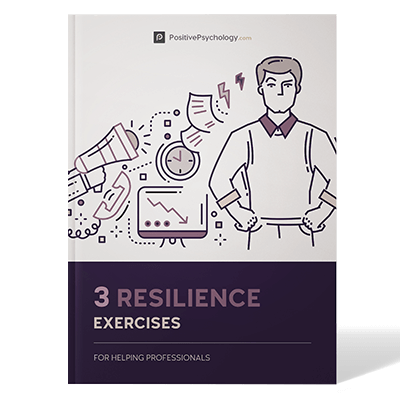
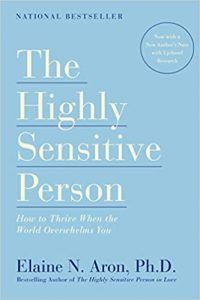
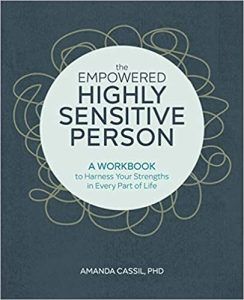
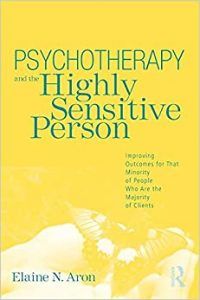
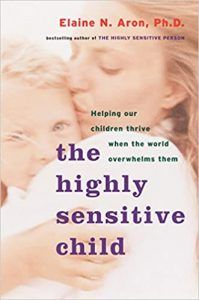
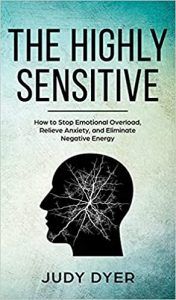
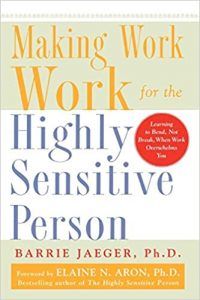
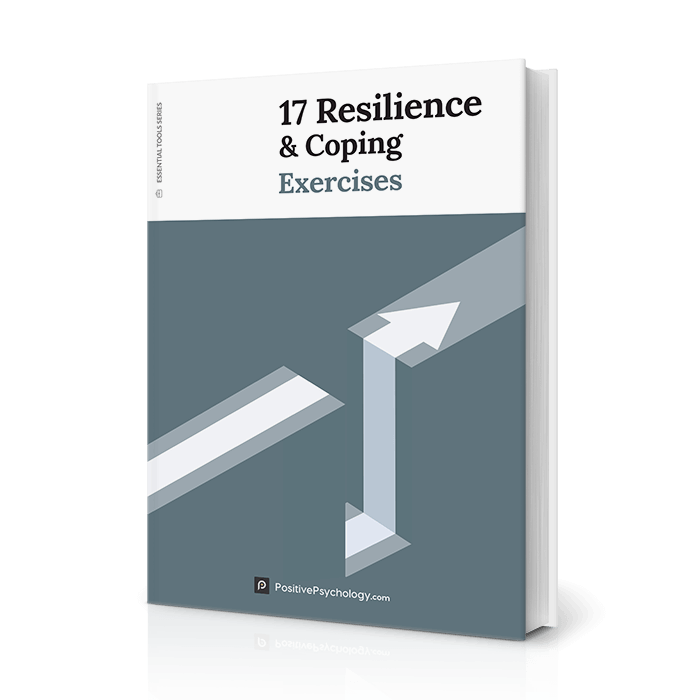





What our readers think
Great information! It struck me recently… I’ve spent most of my career in a very technical professional environment, where emotional “sensitivity” is often viewed or perceived as a weakness or flaw. And yet, many of those who have that belief, also hold sensitive instrumentation in high esteem. Imagine if we viewed HSPs as sensitive instruments, capable of detecting the most subtle intricacies in interaction… Ah, what a world it would be!
Jo Nash, thanks for this information. I would like to know if you have any article about extra sensory perception?
Hi Yaakov,
Thank you for your comment! Currently, we do not have an article about extra-sensory perception. However, this paper might interest you.
Kind regards,
-Caroline | Community Manager
Mulțumesc!
Jo this messages was awesome. Have learn a lot from it Excellent thank you.
Excellent and insightful
Thank you for explaining the HSP traits and reactions to life. The tests confirmed I am a HSP which has given a lot of clarity to my life experiences including career burnout. Pushing myself, too hard, too long, too often based on striving for work deadlines set by others, combined with my own high standards of conscientiousness and perfection added to the situation.
Dear Jo, most helpful.
Do you have any information about HSP and Psychic Ability & Telepathy and how this might be managed.
Hi Nett,
Interesting question! There’s definitely less out there in terms of academic papers on this — most work appears to stem from spiritual and Eastern traditions. One book that’s received many positive reviews on Amazon is this one by Sanaya Roman, so perhaps this might help you!
– Nicole | Community Manager
This information was amazing and put together really well. Thank you
Thank you so mucn for this useful information, it helped me to know my daughter better since she is a HSP.
Thank you so much this is so revealing!
this is a grateful job. especially for those like us who don’t have enough resources or professional service.